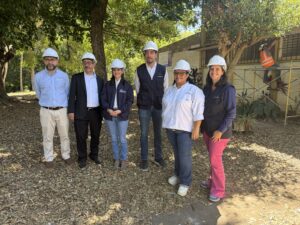
The study presented by the Comisión Económica Para América Latina (CEPAL) highlights the major structural challenges facing El Salvador, particularly high labor informality and low integration into global value chains, factors that limit the generation of quality employment and sustainable growth.
Limited participation in industrial and technological sectors reduces opportunities for access to higher wages and less routine occupations, while informality exceeds 50% of national employment, in line with the reality in Central America.
ECLAC experts warn that productive modernization and institutional strengthening are urgently needed to transform the Salvadoran labor market and take better advantage of opportunities for international integration.

Expanding its presence in modern and strategic sectors, such as complex manufacturing and technological services, would enable El Salvador to raise average wages and gradually reduce informality, as well as boost the economy and offer more inclusive and protected jobs.
The report argues that this transformation must be accompanied by public policies focused on education, access to the formal system, and social protection, as well as incentives for investment in industry and innovation.

Central America: Gaps, comparisons, and opportunities
ECLAC indicates that countries such as Costa Rica and Mexico have a share in global value chains that is double that of El Salvador, resulting in greater formal employment and better wages. In Costa Rica, 28% of gross value added is linked to export activities within these chains, and the wage differential can exceed 7% compared to the national average. In contrast, Honduras, and Guatemala face challenges like those of El Salvador, with high informality and low industrial dynamism.
The study emphasizes that, in Central America, gaps in productivity and labor formalization reflect differences in industrial development policies, international integration, and innovation capacity. The region still has room to take advantage of nearshoring and the redesign of global chains, but it requires public and private investment, regulatory reforms, and specialization in strategic sectors to close the gap with more diversified and modern economies.

Latin America: Shared vision and challenges
In Latin America, informal employment affects 50% of workers, and economic growth remains linked to advances in productive modernization and industrial technification. In more integrated countries, formal jobs and wages tend to be better protected from international crises, while fragmentation and low specialization perpetuate inequalities. The report warns that a commitment to positive structural change and the expansion of the modern sector is essential to overcome the poverty and middle-income traps in the region.
For Latin America as a whole, ECLAC proposes strengthening productive chains, promoting jobs in advanced industries, and improving social protection as an indispensable path to reconciling growth, reducing inequalities, and social welfare.
You may also be interested in:







